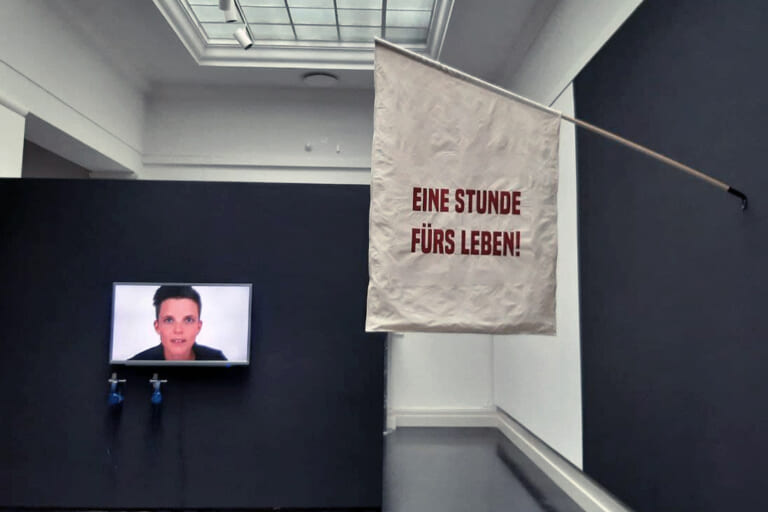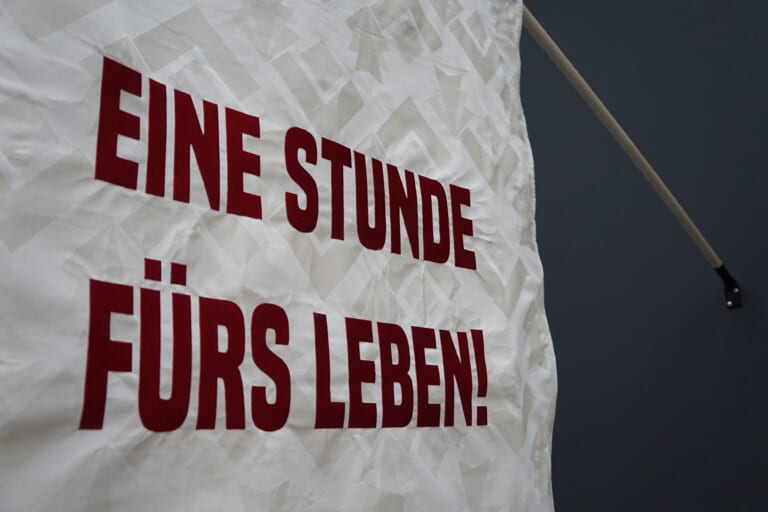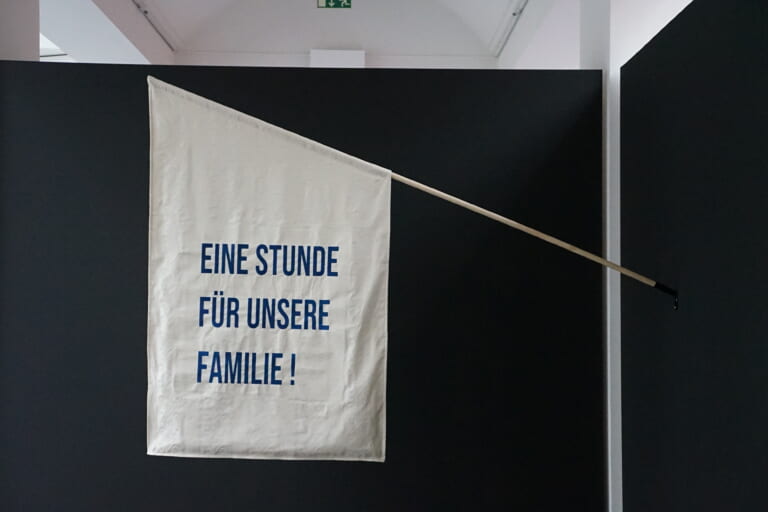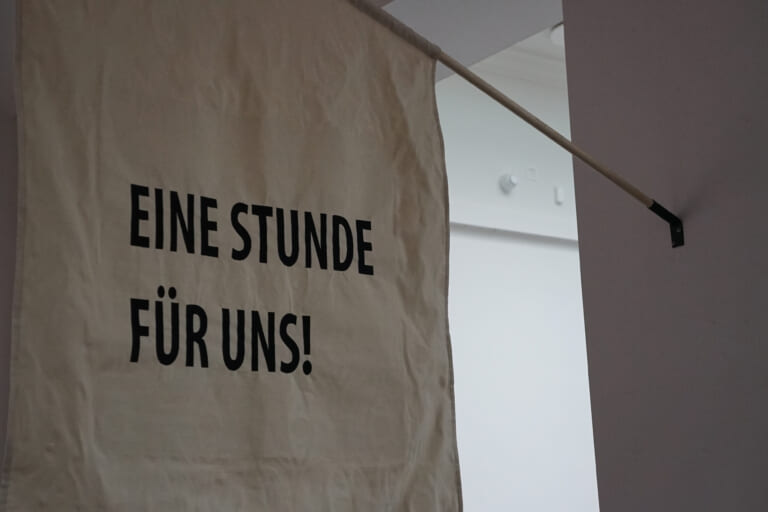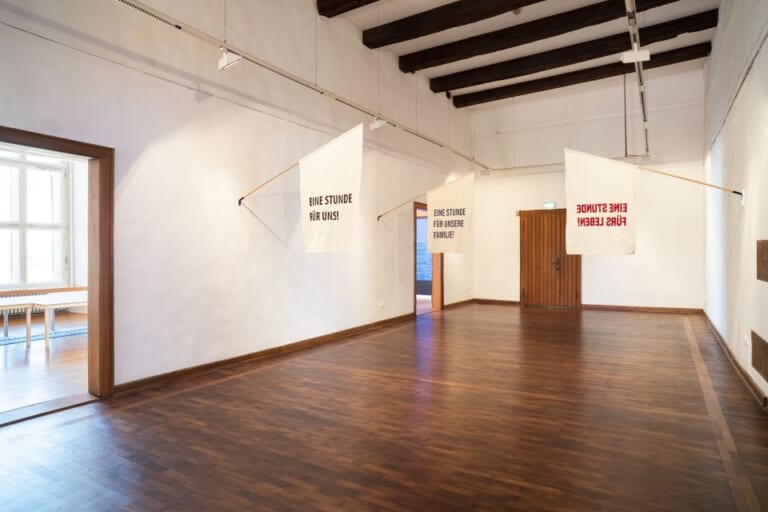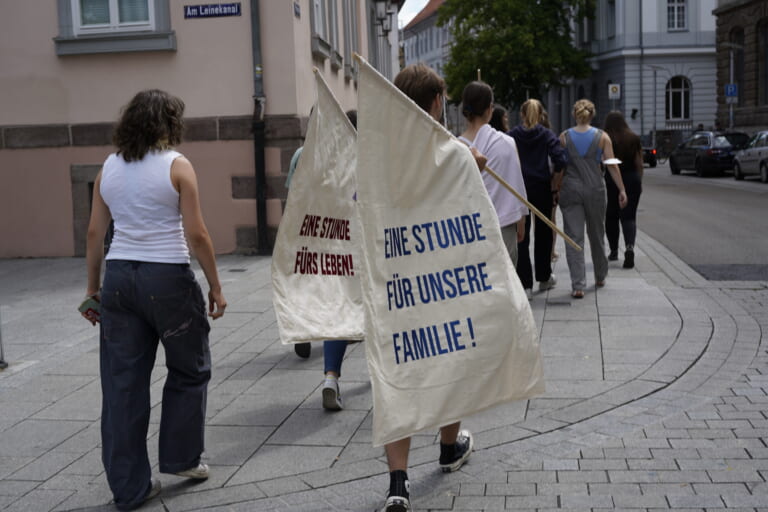https://www.kunstsammlungen-zwickau.de/de/max-pechstein/foerderpreis
Aria fermata – chant of a washing machine is a work created for the Bienale of Lyon 2019. This large exhibition took place in the former Fagor Brandt factories, in a suburb of Lyon. Fagor Brandt produced in the huge halls, for example, electric vehicles, but also washing machines. The history of the place interested me because it is also the history of global capital flows. Production was first outsourced to Poland and then finally to Algeria. In Lyon, of course, many workers lost their jobs when the factory closed. With the Bienale, the neighborhood was also gentrified, a shameful process.
I wanted the washing machine to have its little opera performance in the place where it is no longer produced. For this I asked Rosa Klee, a musician who wrote the washing machine’s song, her solo aria so to speak, for me after a long rehearsal process. The piece is introduced – as in classical opera – by a rather ‘narrative’ part, the recitative. Rosa Klee has also developed her own notation for it, which functions like an understanding between the two of us.
Several meanings are hidden in the title. The fermata is a sign in music for a pause. It prolongs the tone or the pause over which it stands. It holds the tension: Is something now closed, closed, closed (fermé)? How does it continue, and when is the right moment for it? With the singing of the washing machine one can ask: Will the tiring cycle continue or will something else happen?
Feminist questions immediately follow here. For Aria fermata is also about the invisibility of housework and reproductive work, which is mostly done by women and is devalued. And in the spin cycle, the Aria also becomes very loud – of course, it is also about the workers of the old Fagor Brandt factories and their rights.
For me, then, a historical analogy was particularly interesting about the invitation to Zwickau – namely the textile workers’ strikes of Crimmitschau. While in Lyon in the 19th century the silk weavers fought with uprisings for improvements in their living and working conditions, in Crimmitschau at the beginning of the 20th century it was also about the fight for their own rights, for example the 10-hour day. Both are examples of how workers fight against capitalist exploitation. Slogans in Crimmitschau were e.g. One hour for us, one hour for our family, one hour for life.
To link these stories and struggles, I sewed and machine embroidered these three flags for Zwickau. They are made of a raw fabric, a damask from an old Saxon textile company. I see them almost as a monument to the workers of the region. Although the 10-hour day was not immediately fought for during the Crimmitschau strike, it was nevertheless introduced a few years later. For me, however, the demands are still relevant – the social system and the way of doing business have only changed in parts. In the “faster, higher, further” logic, one hour for me, one for my social environment and one for life every day is still something that may have to be demanded.
I would like to thank Silke Wagler for the nomination as well as Samuel Arnold and Rosa Klee.
